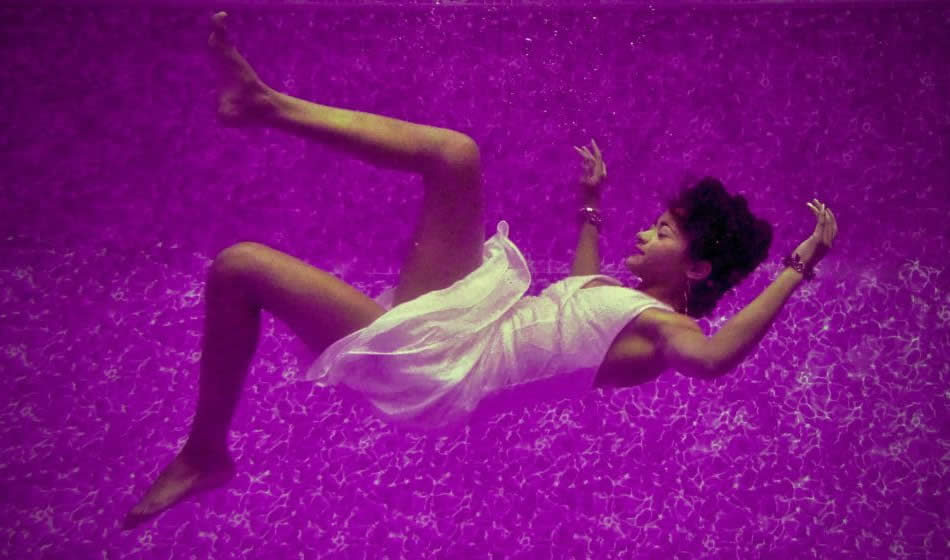“Wow, that must have been really hard. I’m really sorry that happened to you.”
That’s the most common response I hear when I talk about my transition from childhood to adulthood.
My response?
“Actually, that was probably one of the best things that ever happened to me. I’m so glad it happened when I was 18. It shaped the rest of my life.”
You see, I grew up rich. We had the fancy cars, the golf club memberships, and the expensive vacations. Seemingly overnight, all of that changed just as I was about to leave home for university. This change of fortune made me second guess my decision to study abroad at which point my brother gave me one of the best pieces of advice I’ve ever received.
“May, just get on the roller coaster. Worry about throwing up later.”
So, I left. I soon found myself in a foreign country, living away from home for the first time with very little money. Fortunately for me, my wanderlust was a stronger driver than self-pity and I soon found ways to go to the festivals, adventures, and conferences that I wanted to attend.
I hitchhiked, volunteered, and learned how to make the system work for me. I learned the essential art of networking and that everything was negotiable. Most importantly, I learned to trust myself.I knew, from that point on wards, that I would always be able to figure things out.
Today, I know how this lesson in self-sufficiency has defined my life. It’s taken away all my excuses not to travel (because that two-week vacation is negotiable), it’s accelerated my career at work (because delivering that multi-million dollar project has less unknown variables than traveling to foreign places to rock climb for months by yourself on a shoestring budget), it’s given me mental freedom (because I know that I earned everything I own today and I can do it all over again).
The truth is, I couldn’t pay for a lesson like this. Knowing all this, would I have wished the misfortune of being poor on myself? Hell no!
Like most people, when I set my hopes for the future, I would never wish for bad things to happen because well…fortunate events feel pretty darn good. But I have learned to be grateful for the lessons and opportunities these unfortunate events have forced upon me. Now, I see how much they shape our trajectory and create opportunities, almost always in ways that would not have happened had everything gone smoothly.
Consider my friend Juan. Juan is a charismatic, extremely capable Chilean who found himself a job in Australia. He loved Australia and was reasonably happy with his job. Underneath his easy exterior, though, Juan housed some very big dreams. He wanted to start his own real estate company, no, real estate empire.
The problem is that this dream forced him to choose between Australia (good thing) and returning home (not so good thing). Every hour that Juan spent relaxing on the beautiful beaches in Australia was time he didn’t spend pursuing his dream but Juan was okay with that.
Then one day, Juan got laid off. I almost ended our friendship by saying “Juan, I really hope you don’t find another job in Australia.” I said that because I knew that the reason Juan wasn’t living his dream wasn’t from lack of ability or time, it was because of a lack of necessity. He needed a kick in the butt to force him to try. Juan didn’t get another job in Australia, went home and promptly started his real estate company.
My friend Scott was pretty lucky from the get-go. He was born into an upper-middle-class white family with the talent switch enabled. From a young age, he found himself excelling in all manner of athletic pursuits.
He was the guy who broke the school record for long jump and the 100m sprint the first day he ever tried the event. He was the guy who won a swath of swimming ribbons without ever training. In high school, he became an elite gymnast, competing at the highest levels of national competition.
The irony is that there is no school of life that teaches you how to handle talent or privilege and you either use it to your advantage or get complacent. When things come easy, some people never learn to try hard. What did he do with all his talent and privilege?
Not all that much. It took months of mistreatment and a continuous chain of demoralizing incidents at his soul-sucking 9-to-5 job with a toxic work environment for him to finally re-assess what he wanted in life and to start living it. Scott ultimately learned that frustration and angst were much better motivators than talent and privilege.
What about the unfortunate events that seem totally meaningless? The stolen bike, the bird pooping on your head on your way to work? Well, sometimes, an unfortunate event isn’t a catalyst to something better but simply a reminder of how fortunate we are. On the last day of the year — on a snowy, freezing cold day — someone smashed the windows of my car which was parked in the garage of my building.
I could have reacted with anger at this senseless act of violence and a violation of my sense of safety in my own building but my immediate thought was, “how lucky am I that I have the money to make this problem go away immediately?”. I was reminded that there are people I know who live in their car and would not have been able to afford to repair it. As for the bird poop — well, it that’s the worst thing that happens to you that day, then your life isn’t so bad.
What if you aren’t one of the fortunate? What if you were one of those people who had to freeze through the night in the car with the broken window? What if you’ve been unemployed for months and a bird pooped on you while you were on your way to your only interview in months? Sometimes, the lessons that unfold in those situations are the most meaningful ones because they remind us of the importance of community.
I’m reminded of an incident that happened to my friend Phoebe many years ago. Phoebe was 19 years old then and wrapping up a wonderful trip around the world. She had used up every last bit of her savings and was at the airport waiting for her final flight home. She discovered that she had somehow overstayed her visa and now could not leave the country without paying the hefty fine. Fortunately for Phoebe, a couple standing behind her overheard the entire scenario and offered to pay the fine for her — no strings attached.
As she boarded the plane and sat next to the rather intimidating men on her row, it dawned on her that she now had no money for food on her 11-hour flight and had not eaten all day. Plus, she was sitting next to some pretty scary dudes. Sometime throughout the flight, her large, scary rowmates morphed into friendly giants and bought all the food she could eat after hearing about her ordeal. Needless to say, her faith in humanity was restored by people she would probably never have talked to had she not needed their help.
Every person could probably think of a past experience in which a relationship has deepened because you were in need. New friendships are commonly forged over breakups, and old friendships are leaned on in times of loss or suffering. Bad things allow people to be there for us, a reminder we are sometimes sorely in need of.
Then there are times when bad things don’t just have a silver lining, they are downright life-changing. When I first started rock climbing, I was fearless and feisty. I would take risks I didn’t understand and had an unhealthy conviction that I was invincible — until I got helicoptered out from a cliff with a broken foot. For years, I bemoaned the setback, fantasizing about how far I would have progressed had I not been paralyzed with fear from that fall.
One day, I realized that I was not this person. I have never been a fearful, helpless person and began to approach the setback more logically. I sought out a climbing camp that focused on risk assessment and learned how to do everything I could to prevent that from happening again. This unfortunate event probably meant that I only had to live with a broken foot instead of possibly breaking my spine from not having a healthy respect for the risks of rock climbing.
In biology, there is a term known as eustress which is essentially defined as “good” stress or a form of stress that is beneficial to the organism experiencing it. In rock climbing, fear can often present itself in various situations. Usually, there is always that option to end that fear by simply not doing a climb or backing off. My accident forced me to go from a person who rarely experienced fear to one with the fear levels turned all the way up, all the time.
Fortunately for me, learning the practical lessons in safety had the bonus side effect of freeing myself from the fear that haunted me. In a span of two weeks, I was climbing things I had never been able to physically do even at my strongest. The fall not only taught me that fear was debilitating, but it also taught me that if you could flip the switch in your head and be mentally strong, you could actually improve your performance dramatically. A lesson I apply to all aspects of my life every day.
Aside from the famous example of the invention of Band-Aid due to the inventor’s extremely accident-prone wife, there are many other examples of wonderful discoveries resulting from unfortunate disruptions.
Behavioral economist Tim Harford tells the story of the jazz pianist Keith Jarrett who was confronted with an inadequate piano for a late-night concert. Though initially not wanting to play, he decided to play and record the concert as proof of how catastrophic the piano had been. The album went on to become the best-selling solo album in jazz history and the all-time best-selling piano album precisely because Keith had to improvise on the faulty piano.
And then there is the bad thing that absolutely everyone struggles with — heartbreak. How could something that hurts so badly possibly be good for you?
I had a very unusual insight into this recently. I was catching up with a friend of mine, and she started discussing a rather destructive relationship another friend of hers was experiencing. It soon dawned on us that I was more intimately involved in that situation that I had realized. Her friend’s current boyfriend was someone that I had dated previously.
Here’s the real kicker — I had met him while they were having a relationship.I had witnessed him ignoring her completely out of the blue for over a week only to blame it on a busy work schedule later. I had heard how he spoke of her, of how little that connection meant and how he had intended to break it off for a while. I had listened while he told me how relieved he was to have “broken it off”.
I walked away from that situation pretty quickly and never looked back. But she is still there — 12 months later, re-living that same pain.
How is any of this enlightening?
I walked away from that situation quickly because my previous heartbreaks had taught me what was important to me in a relationship (responsiveness, kindness, transparency, and intention). Those same heartbreaks also taught me what I was and was not willing to accept in a relationship — “that hurt, don’t accept that again.”
Walk away next time.”Sometimes, it’s less dramatic“ — that was nice, but I think what I really need is something different or “my actions were so damaging to our relationship, I should have done X instead.” Heartbreaks or failed relationships provide clarity on what we want from our partners and also what kind of partners we want to be ourselves.
My previous heartbreaks meant that I was aware enough to walk away from that situation. Though we and Hollywood like to convince ourselves otherwise, more than almost any other situation — when it comes to love — we do have a choice. She’s a little younger and I surmised that she may not have learned that yet. I hope she figures it out soon.
As you may have noticed, most of the situations above require us to re-frame how we feel and react to a bad thing. The bad incident itself holds no inherent meaning and has no agenda. So, why is it so important to remember to re-frame? Mostly because the bad thing will or has already happened to you no matter what you choose to think. You may as well gain something for it. Nothing can be gained by self-pity.
Your first instinct upon reading that might be to think of a situation you couldn’t refrain. I can think of one. Your flight to a conference gets canceled because of a storm. There are no flights until tomorrow and you cannot leave the airport. Worse still, you’re the keynote speaker. No one can offer any assistance.
It’s true, that is a situation I would struggle to reframe — but maybe you can proactively seek opportunities within misfortunes. Make an effort to talk to someone else who is also stuck. Who knows, you may end up meeting the love of your life. If that ends up being the case, missing a conference is a small price to pay to for lifelong bliss.
If we only take the time to look, there are many scenarios of people finding opportunity from misfortune. There is the disease survivor who starts a charity that funds the cure, the ex-drug addict who finds his true purpose as a motivational speaker, the victim who gets laws changed.
The universe is trying to make you a better human or remind you of all the good humans around you. You may not get what you want, but it might just be what you need.
![]()


























